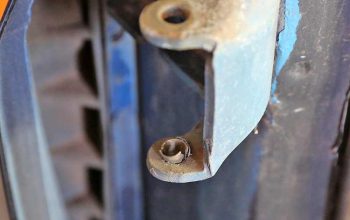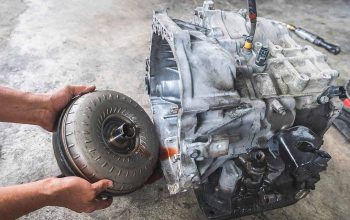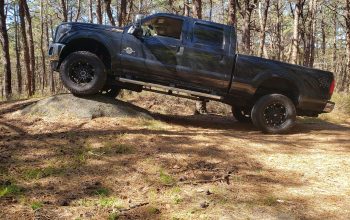Ecu flash and dyno tune are two methods used to optimize engine performance. Ecu flash involves reprogramming the engine control unit (ECU) to enhance power and efficiency, while dyno tune uses a dynamometer to fine-tune the engine’s settings for optimal performance.
Introducing these modifications can improve horsepower, torque, fuel efficiency, and throttle response. Both methods have their benefits, but the choice depends on individual requirements and preferences. Ecu flash offers convenience and flexibility as it can be done remotely, whereas dyno tune provides precise and customized adjustments based on real-time testing.
Ultimately, selecting the right method depends on factors like budget, vehicle modifications, and personal preferences. Remember to assess the compatibility of your vehicle and consult with experienced professionals before deciding which method is best for you.

Credit: m.youtube.com
Understanding Ecu Flash And Dyno Tune
Ecu Flash and Dyno Tune are two methods used to optimize a vehicle’s performance. While Ecu Flash involves reprogramming the Engine Control Unit (ECU) to enhance power and efficiency, Dyno Tune fine-tunes the engine on a dynamometer for optimal performance.
Both techniques have their benefits and drawbacks, depending on individual preferences and requirements.
Brief Explanation Of Ecu Flash And Dyno Tune
Ecu Flash and Dyno Tune are two popular methods for optimizing vehicle performance. Each technique has its own unique approach to fine-tuning a vehicle’s engine control unit (ECU) and enhancing overall performance. Let’s explore these methods in more detail.
Understanding Ecu Flash:
- Ecu Flash involves modifying the ECU’s settings by rewriting the software that controls various parameters of the engine.
- It allows for customization and adjustment of fuel and ignition timing, boost levels, throttle response, rev limits, and more.
- Ecu Flash is typically performed by using specialized software, connecting a computer directly to the vehicle’s ECU, and making the necessary modifications.
- This method provides the flexibility to optimize performance based on specific requirements, such as increasing power output, improving fuel efficiency, or enhancing drivability.
Understanding Dyno Tune:
- Dyno Tune, also known as dyno testing or dyno tuning, involves using a dynamometer to evaluate and refine the performance of a vehicle.
- The process begins by strapping the vehicle onto a dynamometer, which simulates real-world driving conditions in a controlled environment.
- Through a series of acceleration tests and measurements, the tuner collects data to identify areas of improvement and fine-tune the vehicle’s performance.
- Adjustments may involve modifying fuel delivery, ignition timing, air intake, exhaust, and other components to optimize power output and drivability.
- Dyno Tune provides precise and accurate results, as it enables tuners to test and adjust the vehicle under various loads, speeds, and conditions.
How Ecu Flash And Dyno Tune Optimize Vehicle Performance:
Ecu Flash and Dyno Tune serve the common goal of enhancing a vehicle’s performance, but they achieve this goal through different approaches. Here’s an overview of how each method optimizes vehicle performance:
Ecu Flash Optimization:
- Customization: Ecu Flash allows for personalized adjustments based on specific performance goals and vehicle requirements.
- Fine-tuning: Modifying ECU settings enables precise adjustments to fuel delivery, ignition timing, and other performance parameters.
- Increased power: By optimizing engine performance, Ecu Flash can unlock additional horsepower and torque.
- Enhanced drivability: Adjusting throttle response, rev limits, and other factors can improve how the vehicle responds to driver input.
Dyno Tune Optimization:
- Data-driven improvements: Dyno Tune utilizes real-world simulation on a dynamometer to gather precise data on a vehicle’s performance.
- Fine-tuning under different conditions: By evaluating the vehicle’s performance under various loads and speeds, tuners can optimize its response in different driving situations.
- Optimized fuel delivery: Adjusting fuel delivery based on dyno test results can lead to better fuel efficiency and power output.
- Exhaust and air intake upgrades: Dyno Tune enables the tuner to optimize the vehicle’s air intake and exhaust systems, improving engine breathing and performance.
Both Ecu Flash and Dyno Tune offer unique benefits and can significantly contribute to maximizing a vehicle’s potential. It’s important to consider factors such as budget, specific performance goals, and the availability of reputable tuners to determine which method best suits your needs.
Pros And Cons Of Ecu Flash
Ecu Flash and Dyno Tune both have their advantages and drawbacks. Ecu Flash offers convenient and cost-effective tuning options, but may lack precision. On the other hand, Dyno Tune provides highly accurate tuning but can be time-consuming and expensive. Choose the method that best suits your needs and preferences.
Ecu Flash is a popular method for tuning vehicle engines, providing several advantages but also having some limitations. In this section, we will explore the pros and cons of Ecu Flash, giving you a better understanding of its benefits and potential drawbacks.
Advantages Of Ecu Flash For Vehicle Tuning:
- Increased horsepower and torque: Ecu Flash allows for fine-tuning of the engine’s performance parameters, resulting in improved power output. By optimizing fuel delivery, ignition timing, and other factors, this tuning method can unlock additional horsepower and torque, enhancing overall vehicle performance.
- Improved throttle response: Ecu Flash adjusts the response of the throttle, reducing delay and providing a more immediate reaction to driver input. This improvement in throttle response results in a more enjoyable driving experience, with increased responsiveness and better control over the vehicle.
- Enhanced fuel efficiency: With carefully calibrated fuel delivery, Ecu Flash can optimize the engine’s combustion process, improving fuel efficiency. By making the engine run more efficiently, you can potentially save on fuel costs in the long run.
Limitations Of Ecu Flash:
- Potential risks of damaging the ECU: Ecu Flash should only be performed by trained professionals, as improper tuning can potentially damage the vehicle’s Engine Control Unit (ECU). Overlooking critical parameters or applying incorrect settings may lead to engine problems or malfunctions. It is crucial to choose a reputable tuner who has expertise in Ecu Flashing to mitigate the risk of ECU damage.
- Incompatibility with certain vehicle models: While Ecu Flash is widely applicable, it may not be compatible with all vehicle models. Some newer vehicles utilize more advanced ECU systems that are not easily reprogrammable. It is important to consult with an expert or perform thorough research to ensure that your specific vehicle can undergo Ecu Flash tuning.
- Difficulty in reverting to the stock ECU settings: Once you perform an Ecu Flash, reverting to the stock ECU settings can be challenging. This limitation means that if you encounter any issues with the tuned settings or want to return to the original configuration, it may require professional assistance to restore the ECU to its factory state. It is essential to consider this permanence before deciding to proceed with an Ecu Flash.
Ecu Flash offers many advantages for vehicle tuning, including increased horsepower, improved throttle response, and enhanced fuel efficiency. However, it is crucial to be aware of the potential risks associated with damaging the ECU, compatibility limitations with certain vehicle models, and the difficulty in reverting to the stock ECU settings.
Taking these factors into account will help you make an informed decision when considering Ecu Flash as a tuning option.
Pros And Cons Of Dyno Tune
Dyno Tune has its pros and cons compared to ECU Flash. While it offers precise adjustments tailored to your vehicle, it can be costlier and less convenient. Understanding the trade-offs helps you decide accordingly for optimal performance.
Advantages Of Dyno Tune For Vehicle Tuning:
- Customized tuning for specific vehicles:
- Dyno tuning allows for personalized adjustments tailored to the specific make, model, and modifications of a vehicle.
- Tuners can fine-tune parameters such as air to fuel ratio, ignition timing, and turbo boost levels, optimizing performance to meet individual requirements.
- Enhanced performance in varying driving conditions:
- Dyno tune enables drivers to experience improved performance across a wide range of driving conditions, from daily commuting to track racing.
- Tuners can optimize the engine’s power delivery, improving throttle response, torque, and overall horsepower output.
- Comprehensive analysis of engine behavior:
- With the use of a dynamometer, tuners can gather accurate data about the engine’s performance during dyno tuning.
- This detailed analysis includes monitoring air-fuel ratios, exhaust gas temperatures, and other critical engine parameters.
- The insights gained from this analysis allow tuners to make precise adjustments, ensuring optimal engine performance.
Limitations Of Dyno Tune:
- Higher cost compared to Ecu Flash:
- Dyno tuning involves the use of specialized equipment and expertise, making it a more expensive option compared to Ecu flashing.
- The cost primarily includes the consultation fee from a professional tuner, the dyno tuning session, and any parts or modifications needed to achieve desired results.
- Requires expertise from a professional tuner:
- Dyno tuning is a complex process that demands in-depth knowledge and experience to achieve optimal results.
- It’s crucial to seek the services of a skilled tuner who can analyze the data collected during the dyno session and make the necessary adjustments to maximize performance.
- Time-consuming process for achieving optimal results:
- Dyno tuning is a meticulous procedure that requires multiple dyno runs to fine-tune the engine and achieve the desired performance.
- It may take several hours, or even multiple sessions, to achieve optimal results, as each adjustment needs to be carefully tested and analyzed on the dyno.
Remember, when seeking to optimize your vehicle’s performance, considering the advantages and limitations of dyno tuning will help you make an informed decision.
Factors To Consider When Choosing Ecu Flash Or Dyno Tune
Choosing between an Ecu Flash and Dyno Tune requires weighing factors like customization, immediate results, and budget considerations. Each option offers unique advantages, making it essential to thoroughly evaluate these factors before making a decision.
Ecu Flash Vs Dyno Tune
When it comes to improving the performance of your vehicle, Ecu Flash and Dyno Tune are two popular options worth considering. Both methods have their own advantages and it’s important to carefully evaluate your needs and requirements before making a decision.
In this section, we will discuss the key factors that you should consider when choosing between Ecu Flash and Dyno Tune.
Performance Goals And Requirements
Before deciding on Ecu Flash or Dyno Tune, it’s crucial to define your performance goals and requirements. Consider what specific improvements you want to achieve with your vehicle. Are you looking to enhance horsepower and torque, optimize fuel efficiency, or improve throttle response?
Understand your desired outcomes to guide your decision-making process.
Vehicle Make And Model
The type of vehicle you own is another crucial factor to consider. Different Ecu Flash and Dyno Tune options may be available for different makes and models. Research and identify what options are compatible with your vehicle. It’s important to note that some vehicles may have limitations or specific requirements when it comes to Ecu Flash or Dyno Tune.
Consulting with professionals or referring to manufacturer guidelines can provide valuable insights.
Budget And Cost-Effectiveness
Budget is an important consideration in any decision-making process. Both Ecu Flash and Dyno Tune come with their own costs and it’s important to assess the financial feasibility of each option. Consider the upfront costs as well as any potential long-term costs, such as maintenance or further modifications down the line.
Evaluate the cost-effectiveness of each option in relation to the potential performance improvements you can achieve.
Choosing between Ecu Flash and Dyno Tune requires careful consideration of your performance goals, the compatibility with your vehicle, and the financial aspects. By evaluating these factors alongside other considerations such as warranty implications and availability of expertise, you can make an informed decision that aligns with your personal preferences and vehicle requirements.
Remember to consult with professionals and do thorough research before making a final decision.
Which Option Is Right For You?
Choosing between an Ecu flash and a dyno tune can be a tough decision, but with careful consideration of your specific needs and goals, you can determine the best option for you. With an Ecu flash, you can enjoy the convenience of easy modifications, while a dyno tune offers precise customization to optimize your vehicle’s performance.
Evaluating The Pros And Cons:
- Ecu Flash:
- Pros:
- Faster and more convenient: An Ecu Flash can be performed quickly, often in a matter of minutes, making it a convenient option for busy individuals.
- Cost-effective: Compared to a Dyno Tune, an Ecu Flash is generally less expensive.
- Easy to update: If you make future modifications to your vehicle, an Ecu Flash can be easily updated to optimize performance.
- Cons:
- Limited customization: Ecu Flash might not offer as much customization as a Dyno Tune, since it is a pre-built program rather than a customized tune.
- Lack of precision: Since an Ecu Flash is designed to work for a wide range of vehicles, it may not optimize performance as accurately as a Dyno Tune.
- Dyno Tune:
- Pros:
- Customization: A Dyno Tune offers a highly customized solution, allowing the tuner to adjust various parameters to optimize performance specifically for your vehicle.
- Accuracy: With the ability to fine-tune the performance settings, a Dyno Tune can provide more precise results, maximizing power and efficiency.
- Comprehensive testing: A Dyno Tune allows for real-time monitoring and adjustments, ensuring that every aspect of your vehicle’s performance is optimized.
- Cons:
- Time-consuming: Unlike an Ecu Flash, a Dyno Tune requires more time and effort due to the comprehensive testing and adjustments involved.
- Higher cost: Due to the labor-intensive nature of a Dyno Tune and the expertise required, it usually comes at a higher price compared to an Ecu Flash.
- Less convenient: Depending on the availability of resources and tuning facilities, scheduling a Dyno Tune can be more challenging and less convenient.
Analyzing Your Specific Needs And Preferences:
When deciding between an Ecu Flash and a Dyno Tune, it’s essential to consider your specific needs and preferences. Take the following factors into account:
- Level of customization desired: If you are looking for a highly customized performance tune to maximize power and efficiency, a Dyno Tune would be the better option.
- Time and convenience: If you are seeking a quick and convenient solution that can be done in a shorter timeframe, an Ecu Flash might suit your needs better.
- Budget: Consider your budget and determine how much you are willing to invest in your vehicle’s performance upgrades. Ecu Flash tends to be more cost-effective, while Dyno Tune comes at a higher price.
- Future modifications: If you plan to make additional modifications to your vehicle in the future, an Ecu Flash may be a better choice, as it can be easily updated to accommodate these changes.
Consulting With An Expert Tuner Or Mechanic:
To make an informed decision between an Ecu Flash and a Dyno Tune, it’s always recommended to consult with an expert tuner or mechanic. They can provide valuable insights and guidance based on their expertise and experience. A professional tuner will assess your specific vehicle, discuss your goals, and provide recommendations tailored to your needs.
Their expertise will ensure you choose the option that will deliver the best results for your vehicle’s performance.
Remember, every vehicle and driver is unique, so what works best for one may not work for another. By evaluating the pros and cons, analyzing your needs, and seeking expert advice, you can make an informed decision on whether an Ecu Flash or a Dyno Tune is the right option for you.
Frequently Asked Questions Of Ecu Flash Vs Dyno Tune
How Much Hp Does Ecu Flash Add?
ECU flash can add significant horsepower, but the exact amount depends on various factors such as the vehicle’s make, model, and modifications.
Is An Ecu Flash A Tune?
Yes, an ECU flash is a type of tune for optimizing and enhancing your vehicle’s performance.
What Is The Difference Between Flash And Custom Tune?
A flash tune modifies the vehicle’s ECU settings, while a custom tune optimizes performance for specific needs.
Is A Ecu Flash Better Then A Power Commander?
An ECU flash is better than a Power Commander because it provides more precise control and optimization.
Conclusion
The debate between ECU flashing and dyno tuning is one that ultimately boils down to personal preference and specific goals. ECU flashing offers convenience and affordability, allowing for quick modifications to be made without the need for a physical dyno session.
On the other hand, dyno tuning provides the advantage of precise adjustments based on real-time data, resulting in optimal performance and drivability. Both methods have their merits and can deliver significant improvements to a vehicle’s power and torque. It’s important to consider factors such as budget, desired performance gains, and the availability of reputable tuners in your area.
Whether you choose ECU flashing or dyno tuning, the key is to work with a knowledgeable and experienced tuner who can provide expert guidance. Ultimately, the goal is to achieve the best possible performance and drivability for your specific vehicle.
So, whether you opt for the convenience of ECU flashing or the precision of dyno tuning, the end result will be a ride that leaves you satisfied and exhilarated.



